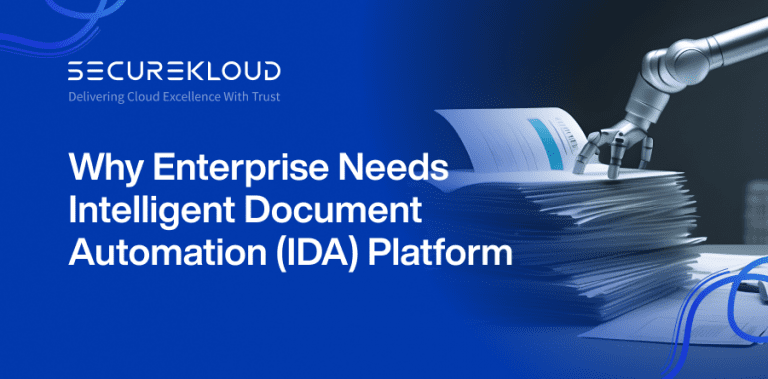- 5Minutes
- 965Words
- 6Views
In today’s digital age, more and more organizations are relying on cloud computing to store, process, and access their data. While this technology offers numerous benefits, such as increased scalability, flexibility, and cost savings, it also comes with its own set of security challenges. Cloud network security is a critical component of any cloud-based infrastructure. It is essential for safeguarding against unauthorized access, data theft, human errors and other security threats.
So, what exactly is cloud network security?
Cloud network security is set of technologies, policies, and controls that are put in place to protect cloud assets, data, and infrastructure from unauthorized access, cyber-attacks, and other security threats. It involves the use of security measures and techniques that are designed to ensure the confidentiality, integrity, and availability of data and applications.
At its core, it refers to the various measures and protocols put in place to secure cloud-based systems, applications, and data. This includes everything from firewalls and intrusion detection systems to encryption and access control mechanisms. The goal of cloud network security is to create a secure environment for cloud computing, which ensures that data remains safe, confidential, and available to authorized users.
Cloud network security is a shared responsibility between the cloud service provider and the customer. The cloud service provider is responsible for ensuring the security of the cloud infrastructure and physical data centres. The customer is responsible for securing their own data and applications that are hosted on the cloud.
Why is Cloud Network Security Important?
Cloud network security is crucial for businesses because it helps to protect their sensitive data, applications, and infrastructure from cyber-attacks and other security threats. Cloud-based systems are vulnerable to the same types of security threats as traditional IT systems, but the risks can be amplified due to the interconnected and dynamic nature of cloud networking resources.
Cloud network security helps businesses to mitigate these risks by providing a range of security controls and technologies that can be customized to meet the unique security requirements of each organization. Cloud network security solutions also helps businesses to comply with regulatory requirements and standards, such as HIPAA, PCI DSS, and GDPR.
What are the benefits of Cloud Network Security Systems?
Cloud security systems offer a range of benefits over traditional on-premise security systems, including:
- Scalability: Cloud security systems are highly scalable and can easily accommodate changing business needs. This allows businesses to expand or downsize their security capabilities as needed.
- Flexibility: Cloud security systems provide businesses with greater flexibility in terms of access and management. Employees can access security controls and monitoring tools from anywhere with an internet connection. Administrators can manage security policies and configurations remotely.
- Cost-Effective: Cloud security systems are typically more cost-effective than traditional security systems. With cloud security, businesses can avoid the costs associated with on-premise hardware, software, and maintenance.
- Improved Security: Cloud security systems are designed to provide advanced security features that protect against a wide range of threats. These systems are typically monitored and managed by security experts.
- Better Compliance: Cloud security systems can help businesses comply with regulatory requirements and standards, such as HIPAA, PCI-DSS, and GDPR. Cloud providers often have built-in compliance controls that can help businesses meet these requirements.
- Disaster Recovery: Cloud security systems can provide businesses with a robust disaster recovery solution. Cloud providers typically offer high availability and redundancy, which ensures that data is backed up and recoverable in the event of a disaster.
Overall, cloud security systems can help businesses improve their security issues, reduce costs, and increase operational efficiency.
Challenges in Cloud Network Security
Despite these benefits, there are also some unique challenges associated with cloud network security.
- Lack of Visibility: Cloud systems can be complex, with many different services and components that must be monitored and secured. This complexity can make it difficult for businesses to have full visibility into their cloud environments. This can make it harder to identify and respond to security threats.
- Data Breaches: Cloud systems can be vulnerable to data breaches, especially if they are not properly configured and secured. Businesses must implement robust security controls and follow best practices to minimize the risk of data breaches.
- Insider Threats: Insider threats, such as employees or contractors with access to sensitive data, can pose a significant risk to cloud security. Businesses must implement access control and monitoring to prevent and detect insider threats.
- Compliance: Compliance can be a challenge in cloud security, as businesses must comply with regulatory requirements and standards while also ensuring the security of their cloud environments. Businesses must ensure that they understand the compliance requirements and implement appropriate controls to meet them.
- Vendor Lock-in: Cloud providers can lock businesses into their services, which can make it difficult to switch to another provider or to bring services back in-house. Businesses must carefully consider their options and ensure that they have a plan for managing vendor lock-in.
To address these challenges, many organizations are adopting a hybrid approach to cloud network security. This involves combining on-premise security tools with cloud-based security services, such as cloud access security brokers (CASBs) or security information and event management (SIEM) systems. By doing so, organizations can gain greater visibility into their cloud environment, while also maintaining control over their on-premise security infrastructure.
Conclusion
In conclusion, cloud network security is an essential component of any cloud-based infrastructure. It involves implementing a range of measures and protocols to secure cloud-based systems, applications, and data encryption, and provides numerous benefits such as centralized management and scalability.
While there are some unique challenges associated with cloud network security, organizations can overcome these by adopting a hybrid approach and combining on-premise security tools with cloud-based security services. By doing so, they can ensure that their cloud-based assets remain secure and compliant.







